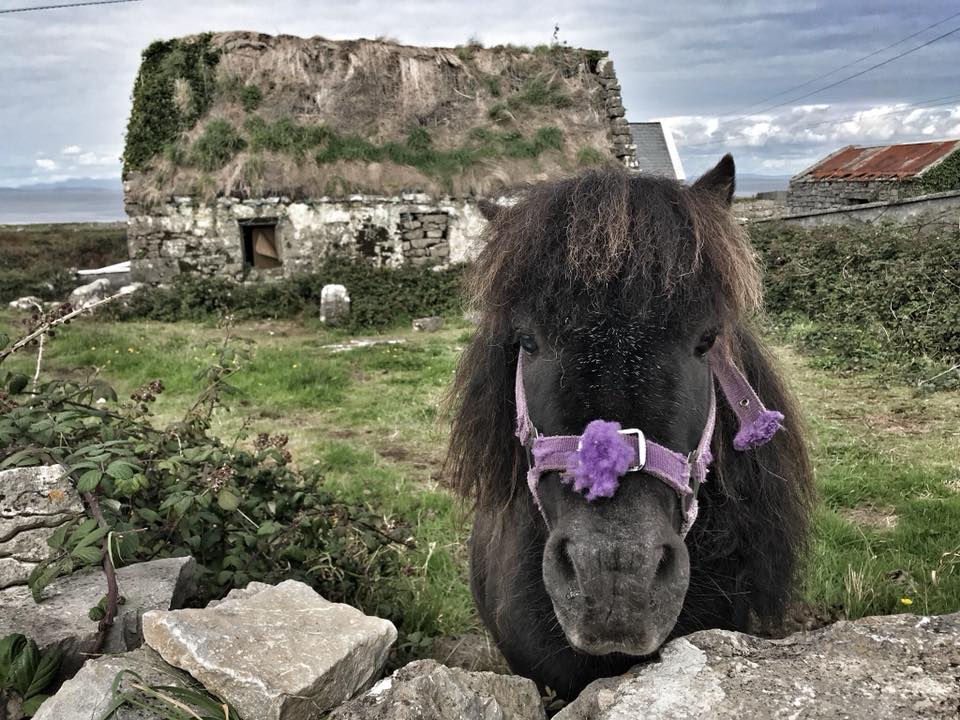By Christine Valters Paintner
Let mystery have its place in you; do not be always turning up your whole soil with the plowshare of self-examination, but leave a little fallow corner in your heart ready for any seed the winds may bring, and reserve a nook of shadow for the passing bird; keep a place in your heart for the unexpected guests, an altar for an unknown God.
-Henri-Frederic Amiel
Who doesn’t love the promise of new beginnings that a discernment process offers? St. Benedict described his Rule as a Rule for beginners, reminding us to always begin again. In Buddhism, an essential practice is beginner’s mind. When we think we have become an expert at things, especially the spiritual life, we are in trouble.
Living into the mystery of things helps us to release our hold on needing to know the answers. One of the things the monk and artist have in common is a love of mystery, a willingness to sit in the place of tension and paradox until it ripens forth.
For example, New Year’s resolutions often come from a place of lack, or of thinking we know how to “fix” ourselves. Unfortunately, they are often fueled by a consumer culture that is eager to have us buy more and more things to improve ourselves. Embracing mystery, on the other hand, honors our profound giftedness and depth and acknowledges that coming to know ourselves and God is a lifetime exploration.
So my invitation to you is to shift your thinking around discernment. Welcome in ambiguity. Learn to love the holy darkness of mystery. Dance on the fertile edges of life. Let what you love ripen forth.
- Breathe deeply – our breath is our most immediate and vital connection to the life force which sustains us moment by moment. Let yourself be filled with awe and wonder at the marvels of this intimate gift. Sit for three minutes savoring that you are breathed into.
- Embrace night wisdom – one of the great gifts of dreams is that they upend our desire for logic and immerse us in a narrative which reveals the shadows we must wrestle with and the joys which call to us, whether or not they make sense to the waking world.
- Dance freely– we live so disconnected from our bodies. Dance has been part of human culture for thousands of years as a way to experience union with ourselves, one another, and the divine. Each day put on one piece of music that you love, close the door, and dance. Pay attention to what rises up in the process. If you resist, even better – dance with your resistance!
- Follow the thread– each of us has a unique unfolding story and call in this world. We don’t “figure this out” but rather we allow the story to emerge in its own time, tending the symbols and synchronicities which guide us along.
- Trust in what you love– following the thread is essentially about cultivating a deep trust in what you love. What are the things that make your heart beat loudly, no matter how at odds they feel with your current life? Make some room in the coming weeks to honor what brings you alive.
- Let the rhythms of nature guide you– we live our lives in a constant state of stimulation and productivity. We are often exhausted and overwhelmed. When we turn to the natural world we find with each day, each moon cycle, and each season a rhythm of rise and fall, fullness and emptiness. Trying to live all the time in rising or fullness is exhausting. Make some time to embrace the falling and emptiness of life which immerses us in an experience of mystery.
- Release what is no longer necessary– we accumulate so many things in our days which require energy to maintain or worry about. Reflect on what is most essential. Then ask yourself, what are the thoughts, attitudes, or expectations about life which keep you from freedom? How do you try to control the direction of your life rather the yielding to grace?
- Remember that you will die– St. Benedict writes in his Rule to “keep death daily before your eyes.” This is never an act of morbid obsession, but a reminder of life’s incredible gift. Any of us who have brushed near death, or had loved ones pass away, know this wisdom in profound ways. This is another paradox of the spiritual life: a vibrant relationship to our mortality is essential to a vibrant relationship to life.
- Ask for the wisdom of your ancestors– each of us is the inheritor of generations of stories which beat through our blood. Each of us has mothers and fathers, grandmothers and grandfathers, who wrestled mightily with living a meaningful life. We can call upon this great “cloud of witnesses” to support us in our own wrestling. We can listen across the veil between worlds.
- Open yourself to receiving a word for the year ahead– in quiet moments what are the desires you hear being whispered from your heart? Is there a word or phrase that shimmers forth, inviting you to dwell with it in the months ahead? Something you can grow into and don’t fully understand?
Imagine if discernment wasn’t about fixing or improving, but about deepening and transforming, about embracing the holy mystery at the heart of the world.
What if the season ahead wasn’t about growing more certain about things, but about releasing the hold of your thinking mind so something deeper and more fertile could rise up?
What might bloom from such rich soil of your imagination? How might you create an altar for an unknown God and for the unknown depths of your own beautiful being waiting to be freed?
NOTE: Today’s post is by one of my favourite authors, Christine Valters Paintner. It is adapted from New Year Blessings – A Love Note from Your Online Abbess which she kindly reshaped for today. Her book The Soul’s Slow Ripening: 12 Celtic Practices for Seeking The Sacred. was one of my best reads for 2018.
 Christine Valters Paintner, PhD is an American poet and writer living in Galway, Ireland. She is the online Abbess at AbbeyoftheArts.com, a virtual monastery integrating contemplative practice and creative expression. Christine Together with her husband John they offer online retreats and live pilgrimage experiences in Ireland, Germany, and Austria. Christine is the author of 10 books including her most recent The Soul’s Slow Ripening: 12 Celtic Practices for Seeking The Sacred.
Christine Valters Paintner, PhD is an American poet and writer living in Galway, Ireland. She is the online Abbess at AbbeyoftheArts.com, a virtual monastery integrating contemplative practice and creative expression. Christine Together with her husband John they offer online retreats and live pilgrimage experiences in Ireland, Germany, and Austria. Christine is the author of 10 books including her most recent The Soul’s Slow Ripening: 12 Celtic Practices for Seeking The Sacred.

